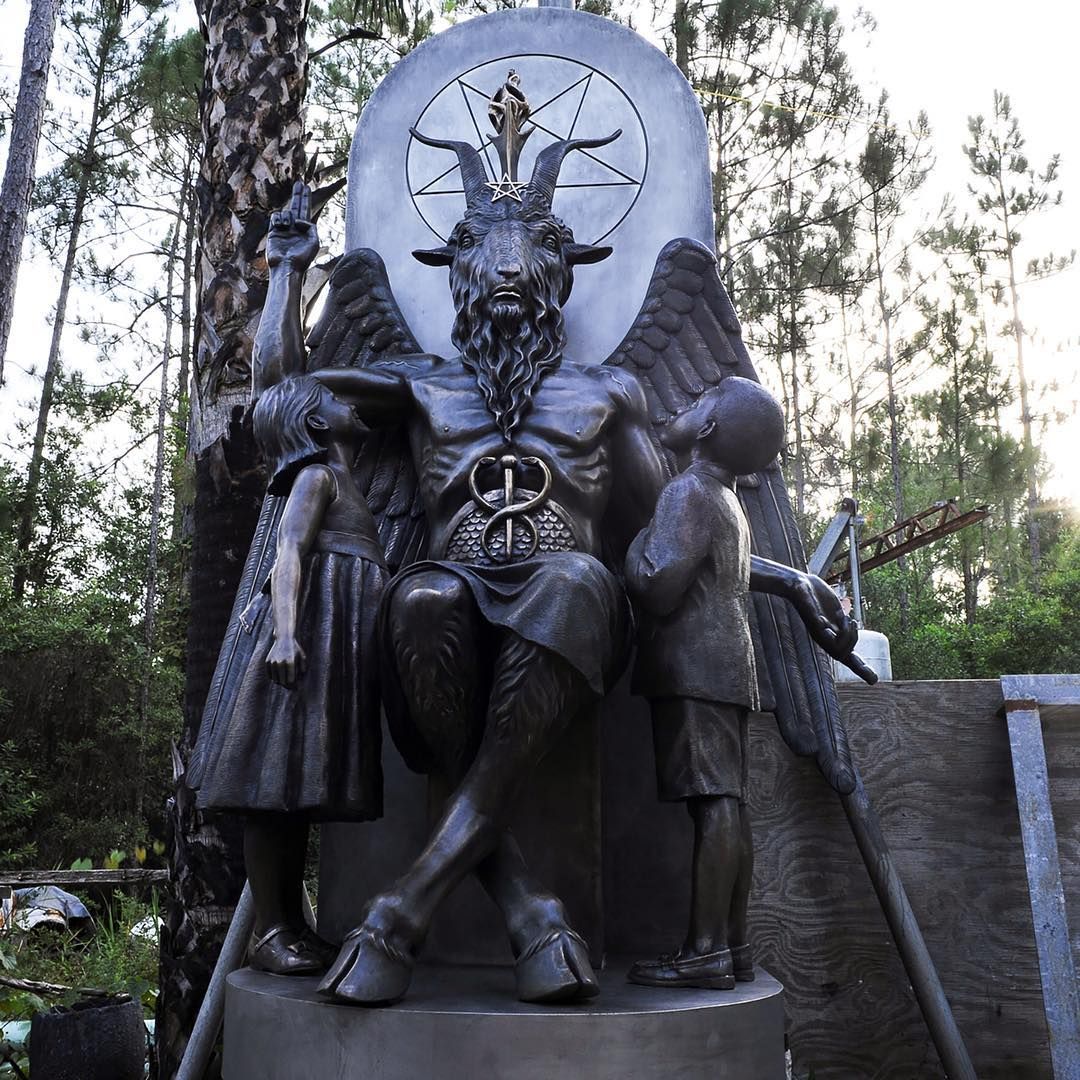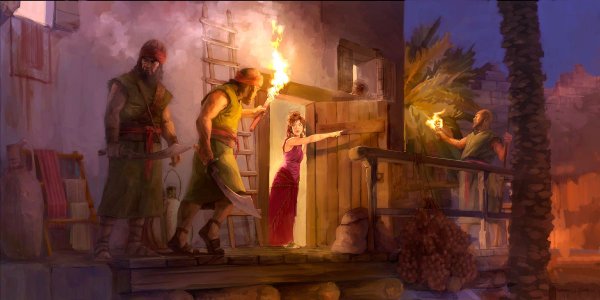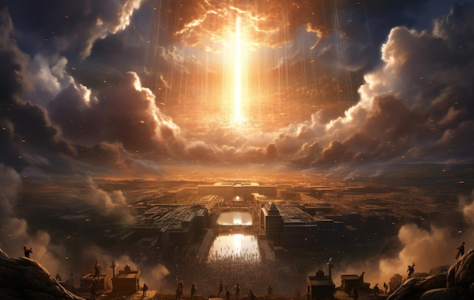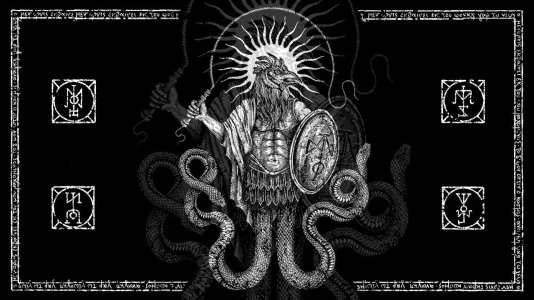- Mar 5, 2024
- 2,135
- 1,103
Our Faith In His Return Will Be Reflected In Our Actions, Part 1
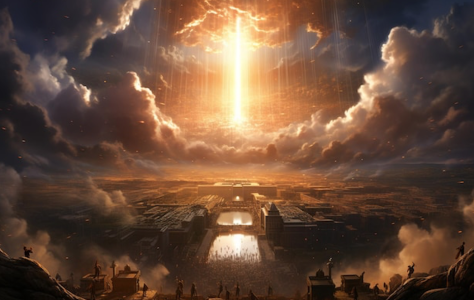
The passages covered next are often hotly debated in discussions about what it truly means to be spiritually "saved." Some say that good works are necessary, while some say they are not.
When the New Testament writers talked about being "saved," however, they usually meant in the literal sense. The belief was that when Jesus Christ returned from Heaven, those still alive in the earth would be taken up with Him into the clouds and spared from the judgment that would then be unleashed upon the world (1 Thessalonians 4:13-18, 2 Thessalonians 1:7-8). And the New Testament writers also subscribed to the belief that His return was imminent, including James, who made references to this himself in the final Chapter of this letter.
Be long-suffering, therefore. Reassure your hearts, for the Lord's coming has drawn near. Do not grumble against one another, brothers, that you not be judged. Behold, the Judge stands at the door. (James 5:8-9)
Peter and Paul both believed the same thing, and likewise coupled faith in the imminent return of the Lord Jesus Christ with the need to manifest corresponding actions:
But the end of all things has now drawn near. Therefore be sober-minded and watchful unto prayers, above all things having fervent love for one another, for “love covers a multitude of sins.” (1 Peter 4:7-8)
Rejoice in the Lord always, and again I say rejoice. Let your sufferance be known to all men, for the Lord is near. (Philippians 4:4-5)
We should be considerate of one another, and aim to provoke each other to love and good works ... all the more as you see the Day approaching. (Hebrews 10:24, 25b)
This, then, is what James was taking about in discussing how faith apart from works could not save a man. At Christ's second coming, those not walking in obedience to Him would not be spared, no matter how much "faith" they claimed to have. The reason was because those who truly believed His teachings would be putting them into action.
My brothers, what help is it if anyone claims to have faith yet does not have works? Is faith able to save him? And if a brother or sister is insufficiently clothed and may be lacking daily food, and anyone from among you says to them, "Go in peace. Be warmed and filled," yet does not give them the things the body needs, what help is it? So also faith if it does not have works is dead by itself. But someone will say, "You have faith, and I have works." Show me your faith apart from works, and I will show you my faith by my works. (James 2:14-18)
The New Testament writers had good reasons for believing His return was imminent. For one, it appeared the emergence of the Antichrist was at hand. Just eight years after Christ was crucified, the Roman Emperor Gaius Caligula attempted to have a massive statue of himself as "Zeus Made Manifest" transported to Jerusalem and set up in the temple of God, in a deliberate attempt to force the Jews to worship him instead of God. He was killed before succeeding at this attempt, but it showed both the Jews and the church just how close they could be to seeing the prophecies in Daniel fulfilled. All it would take was for another Emperor to arise who would succeed at what Caligula attempted to do, and the Biblical prophesies concerning the Antichrist would come to pass.
As the apostle Paul would tell the Thessalonians a few years later, this is what they needed to be watching for when he reminded them that the return of Christ could not take place until the Antichrist had first arisen, and forced the Jews to apostatize against God in Jerusalem:
We implore you, brothers, by the coming of the Lord Jesus Christ and our gathering together unto Him, not to become quickly disturbed in mind nor troubled, neither by spirit, nor by word, nor by letter as if written by us intimating that the Day of the Lord is here. No one should deceive you in any way if the apostasy has not yet come first and that man of lawlessness has been revealed, the son of perdition, who opposes and exalts himself above everything that is called God or is worshipped, so as for him to sit down in the temple of God, exhibiting himself that he is God. Do you not remember that when I was with you I was telling you these things? And you now know the prevailing expectation is for him to be revealed in his own time. For the mystery of lawlessness is already on its way to realization, only he is holding back at present until he manifests out of the midst, and then shall that Lawless one be revealed, whom the Lord Jesus Christ will consume with the breath of His mouth, and depose with the brightness of His coming. (2 Thessalonians 2:1-8)
What Paul likely told them when he was with them were the prophecies Christ Himself gave in Matthew 24, where He warned that the "abomination that causes desolation" was going to be erected in the Temple in Jerusalem. Paul's statements clearly suggest he believed this prophecy was now "already on its way to realization," only the right emperor simply hadn't emerged yet. But the following were the prophecies he apparently told them about when he was with them:
When you see standing in the holy place the abomination that causes desolation, spoken of through the prophet Daniel - let the reader understand - then let those who are in Judea flee to the mountains. Let no one on the housetop go down to take anything out of the house. Let no one in the field go back to get their cloak. How dreadful it will be in those days for pregnant women and nursing mothers! Pray that your flight will not take place in winter or on the Sabbath. For then there will be great distress, unequaled from the beginning of the world until now - and never to be equaled again… (skipping ahead) But then the sign of the Son of Man will appear in the heavens, and all the tribes of the earth will mourn, and they will see the Son of Man coming on the clouds of heaven with power and great glory. And He will send forth His angels with the great sound of a trumpet, and they will gather together His elect from the four winds, from one end of the heavens to the other. (Matthew 24:15-22, 30-31)
The Saving Faith Of Rahab The Harlot
James would now give two examples from Jewish history of how it took more than simply believing to save a man when the judgment of God came. Both Abraham and Rahab acted on what they believed, and it was the actions produced by their faith that actually saved them.
I will deal with Abraham in Part 2, but Rahab stands out for reasons akin to what we have been saying. Her acts of kindness to help the men of God when they were in desperate need of it ended up saving not only her own life, but the lives of her entire family as well.
You believe that God is one? You do well. Even the demons believe and tremble. But will you know, O vain man, that faith apart from works is dead? Was not our father Abraham justified by works, having offered Isaac his son on the altar? You see that faith was working together with his works, and by works was his faith validated. And the scripture was fulfilled which said, "And Abraham believed God, and it was accredited unto him for righteousness," and he was called a friend of God. You see then that a man is justified by works, and not by faith alone. And in like manner was not Rahab the harlot also justified by works, who received the messengers and sent them out by another way? For just as the body apart from the spirit is dead, so also faith apart from works is dead. (James 2:19-26)
The story of Rahab the harlot is found in the Book of Joshua. Although she was a pagan prostitute, she knew the destruction of her city was coming, and very wisely acted to save her own life and her family's by helping the two Jewish spies escape unharmed, just prior to the Israelites attacking and destroying the city entirely.
And Joshua, the son of Naun, sent out two young men to spy the land… [who] went up and entered into Jericho. And they entered into the house of a harlot whose name was Rahab, and lodged there. And it was reported to the king of Jericho, saying, "Men of the sons of Israel have come here to spy the land." And the king of Jericho sent and spoke to Rahab, saying, "Bring out the men that entered into your house this night, for they are come to spy out the land." And the woman took the two men and hid them. And she spoke to the messengers, saying, "The men came in to me, but when the gate was shut in the evening, the men went out. I do not know where they have gone. Follow after them, so you may overtake them." But she had brought them up atop the house, and hid them… And it came to pass when the men who pursued after them were gone, and before the spies had lain down to sleep, she came to them on the roof of the house, and said to them, "I know that the Lord has given you the land, for the fear of you has fallen on us. For we have heard that the Lord God dried up the Red Sea before you when you came out of the land of Egypt, and all that He did to the two kings of the Amorites… Now swear to me by the Lord God: Since I dealt mercifully with you, so also deal mercifully with the house of my father, and save alive the house of my father, my mother, my brothers, and all my house, and all that they have, and you shall rescue my soul from death."
(Continued next post)

The passages covered next are often hotly debated in discussions about what it truly means to be spiritually "saved." Some say that good works are necessary, while some say they are not.
When the New Testament writers talked about being "saved," however, they usually meant in the literal sense. The belief was that when Jesus Christ returned from Heaven, those still alive in the earth would be taken up with Him into the clouds and spared from the judgment that would then be unleashed upon the world (1 Thessalonians 4:13-18, 2 Thessalonians 1:7-8). And the New Testament writers also subscribed to the belief that His return was imminent, including James, who made references to this himself in the final Chapter of this letter.
Be long-suffering, therefore. Reassure your hearts, for the Lord's coming has drawn near. Do not grumble against one another, brothers, that you not be judged. Behold, the Judge stands at the door. (James 5:8-9)
Peter and Paul both believed the same thing, and likewise coupled faith in the imminent return of the Lord Jesus Christ with the need to manifest corresponding actions:
But the end of all things has now drawn near. Therefore be sober-minded and watchful unto prayers, above all things having fervent love for one another, for “love covers a multitude of sins.” (1 Peter 4:7-8)
Rejoice in the Lord always, and again I say rejoice. Let your sufferance be known to all men, for the Lord is near. (Philippians 4:4-5)
We should be considerate of one another, and aim to provoke each other to love and good works ... all the more as you see the Day approaching. (Hebrews 10:24, 25b)
This, then, is what James was taking about in discussing how faith apart from works could not save a man. At Christ's second coming, those not walking in obedience to Him would not be spared, no matter how much "faith" they claimed to have. The reason was because those who truly believed His teachings would be putting them into action.
My brothers, what help is it if anyone claims to have faith yet does not have works? Is faith able to save him? And if a brother or sister is insufficiently clothed and may be lacking daily food, and anyone from among you says to them, "Go in peace. Be warmed and filled," yet does not give them the things the body needs, what help is it? So also faith if it does not have works is dead by itself. But someone will say, "You have faith, and I have works." Show me your faith apart from works, and I will show you my faith by my works. (James 2:14-18)
The New Testament writers had good reasons for believing His return was imminent. For one, it appeared the emergence of the Antichrist was at hand. Just eight years after Christ was crucified, the Roman Emperor Gaius Caligula attempted to have a massive statue of himself as "Zeus Made Manifest" transported to Jerusalem and set up in the temple of God, in a deliberate attempt to force the Jews to worship him instead of God. He was killed before succeeding at this attempt, but it showed both the Jews and the church just how close they could be to seeing the prophecies in Daniel fulfilled. All it would take was for another Emperor to arise who would succeed at what Caligula attempted to do, and the Biblical prophesies concerning the Antichrist would come to pass.
As the apostle Paul would tell the Thessalonians a few years later, this is what they needed to be watching for when he reminded them that the return of Christ could not take place until the Antichrist had first arisen, and forced the Jews to apostatize against God in Jerusalem:
We implore you, brothers, by the coming of the Lord Jesus Christ and our gathering together unto Him, not to become quickly disturbed in mind nor troubled, neither by spirit, nor by word, nor by letter as if written by us intimating that the Day of the Lord is here. No one should deceive you in any way if the apostasy has not yet come first and that man of lawlessness has been revealed, the son of perdition, who opposes and exalts himself above everything that is called God or is worshipped, so as for him to sit down in the temple of God, exhibiting himself that he is God. Do you not remember that when I was with you I was telling you these things? And you now know the prevailing expectation is for him to be revealed in his own time. For the mystery of lawlessness is already on its way to realization, only he is holding back at present until he manifests out of the midst, and then shall that Lawless one be revealed, whom the Lord Jesus Christ will consume with the breath of His mouth, and depose with the brightness of His coming. (2 Thessalonians 2:1-8)
What Paul likely told them when he was with them were the prophecies Christ Himself gave in Matthew 24, where He warned that the "abomination that causes desolation" was going to be erected in the Temple in Jerusalem. Paul's statements clearly suggest he believed this prophecy was now "already on its way to realization," only the right emperor simply hadn't emerged yet. But the following were the prophecies he apparently told them about when he was with them:
When you see standing in the holy place the abomination that causes desolation, spoken of through the prophet Daniel - let the reader understand - then let those who are in Judea flee to the mountains. Let no one on the housetop go down to take anything out of the house. Let no one in the field go back to get their cloak. How dreadful it will be in those days for pregnant women and nursing mothers! Pray that your flight will not take place in winter or on the Sabbath. For then there will be great distress, unequaled from the beginning of the world until now - and never to be equaled again… (skipping ahead) But then the sign of the Son of Man will appear in the heavens, and all the tribes of the earth will mourn, and they will see the Son of Man coming on the clouds of heaven with power and great glory. And He will send forth His angels with the great sound of a trumpet, and they will gather together His elect from the four winds, from one end of the heavens to the other. (Matthew 24:15-22, 30-31)
The Saving Faith Of Rahab The Harlot
James would now give two examples from Jewish history of how it took more than simply believing to save a man when the judgment of God came. Both Abraham and Rahab acted on what they believed, and it was the actions produced by their faith that actually saved them.
I will deal with Abraham in Part 2, but Rahab stands out for reasons akin to what we have been saying. Her acts of kindness to help the men of God when they were in desperate need of it ended up saving not only her own life, but the lives of her entire family as well.
You believe that God is one? You do well. Even the demons believe and tremble. But will you know, O vain man, that faith apart from works is dead? Was not our father Abraham justified by works, having offered Isaac his son on the altar? You see that faith was working together with his works, and by works was his faith validated. And the scripture was fulfilled which said, "And Abraham believed God, and it was accredited unto him for righteousness," and he was called a friend of God. You see then that a man is justified by works, and not by faith alone. And in like manner was not Rahab the harlot also justified by works, who received the messengers and sent them out by another way? For just as the body apart from the spirit is dead, so also faith apart from works is dead. (James 2:19-26)
The story of Rahab the harlot is found in the Book of Joshua. Although she was a pagan prostitute, she knew the destruction of her city was coming, and very wisely acted to save her own life and her family's by helping the two Jewish spies escape unharmed, just prior to the Israelites attacking and destroying the city entirely.
And Joshua, the son of Naun, sent out two young men to spy the land… [who] went up and entered into Jericho. And they entered into the house of a harlot whose name was Rahab, and lodged there. And it was reported to the king of Jericho, saying, "Men of the sons of Israel have come here to spy the land." And the king of Jericho sent and spoke to Rahab, saying, "Bring out the men that entered into your house this night, for they are come to spy out the land." And the woman took the two men and hid them. And she spoke to the messengers, saying, "The men came in to me, but when the gate was shut in the evening, the men went out. I do not know where they have gone. Follow after them, so you may overtake them." But she had brought them up atop the house, and hid them… And it came to pass when the men who pursued after them were gone, and before the spies had lain down to sleep, she came to them on the roof of the house, and said to them, "I know that the Lord has given you the land, for the fear of you has fallen on us. For we have heard that the Lord God dried up the Red Sea before you when you came out of the land of Egypt, and all that He did to the two kings of the Amorites… Now swear to me by the Lord God: Since I dealt mercifully with you, so also deal mercifully with the house of my father, and save alive the house of my father, my mother, my brothers, and all my house, and all that they have, and you shall rescue my soul from death."
(Continued next post)




